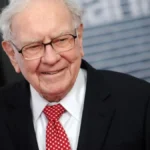Warren Buffett Retires: End of an Era, Start of a New Chapter
Introduction
Warren Buffett, often called the “Oracle of Omaha,” has officially announced that he will step down as CEO of Berkshire Hathaway at the end of 2025. After over six decades of leading one of the world’s most admired investment conglomerates, Buffett’s decision marks the closing of a historic chapter in global finance. His announcement, made during Berkshire’s annual shareholder meeting in May 2025, triggered both nostalgia and curiosity—what happens next for Berkshire, investors, and the philosophy of value investing he championed?
What Buffett Announced
At age 94, Buffett declared that he will retire as CEO by the end of 2025, naming Greg Abel—currently Vice Chairman for non-insurance operations—as his successor. While he is relinquishing operational control, Buffett will remain Chairman of the Board, ensuring continuity and oversight during the transition. He emphasized that Berkshire’s structure, values, and investment approach would remain unchanged. In his own words, “Greg can do in a day what takes me a week,” underscoring the importance of energy, adaptability, and generational renewal in leadership.
Why This Retirement Matters
Buffett transformed Berkshire Hathaway from a struggling textile company in the 1960s into a trillion-dollar conglomerate with holdings across insurance, energy, railroads, FMCG, and technology. His philosophy of long-term value investing—buying quality businesses at fair prices and holding them through cycles—redefined modern investment thinking. His departure as CEO has symbolic importance: it signifies the transition of an era dominated by legendary investors toward one led by institutional discipline and diversified leadership.
What Will Change
Greg Abel’s elevation means a new generation of leadership will steer Berkshire’s operations. Day-to-day decision-making, capital allocation, and acquisitions will gradually reflect his management style. Berkshire’s communication tone may also evolve, as Abel is known for a quieter, data-driven approach compared to Buffett’s folksy storytelling and letters that investors around the world have cherished for decades.
What Will Remain
Buffett will continue as Chairman and remains the largest shareholder, signalling confidence and continuity. Berkshire’s decentralized structure, where each subsidiary operates autonomously, will stay intact. The company’s focus on value, discipline, and strong governance will continue under Abel’s leadership. Buffett’s endorsement ensures that the “Berkshire culture” of rational decision-making and long-term investing will endure even without his daily involvement.
Impact on Investors
For Berkshire shareholders, the leadership transition is both emotional and strategic. Buffett’s personal credibility has long added a “Buffett premium” to Berkshire’s valuation—investors trusted his judgment implicitly. With Abel at the helm, the focus will shift toward performance consistency and operational execution rather than personality. For individual and mutual fund investors, this moment reinforces a timeless truth: investing success should rely on fundamentals and institutional quality, not individual charisma.
For Indian investors, Buffett’s retirement offers valuable lessons. Strong systems and governance are the bedrock of lasting wealth creation. Just as Berkshire’s strength lies beyond one individual, long-term investing in India, too, must rest on process, discipline, and diversification rather than short-term speculation or hero-worship.
Lessons for Investors
- Leadership changes are inevitable—sound businesses are built on systems, not individuals.
- Governance continuity matters—succession planning ensures stability even when iconic leaders move on.
- Value investing outlasts personalities—Buffett’s principles remain relevant across markets and generations.
- Diversification protects investors—just as Berkshire diversified across sectors, investors should spread risk wisely.
Takeaways
Warren Buffett’s retirement is not the end of Berkshire’s story—it is the start of its next phase. By remaining as Chairman, Buffett has ensured that his philosophy and values will guide the company for years to come. The real legacy of Buffett lies not only in his portfolio returns but in his teaching that patience, discipline, and rationality are timeless virtues in investing. As investors worldwide reflect on this transition, the message is clear: the most successful portfolios are built on principles, not personalities.
CapitaGrow helps investors build portfolios that thrive on discipline and process—just like the Buffett way. If you’d like to design a long-term investment plan inspired by value-based principles, connect with a CapitaGrow advisor today. Visit www.capitagrow.com to learn more.
Author Bio
Author: Rajesh Narayanan
Rajesh Narayanan writes for CapitaGrow on investing trends, mutual funds, and personal finance. He focuses on simplifying financial concepts and helping investors make informed, long-term decisions.




